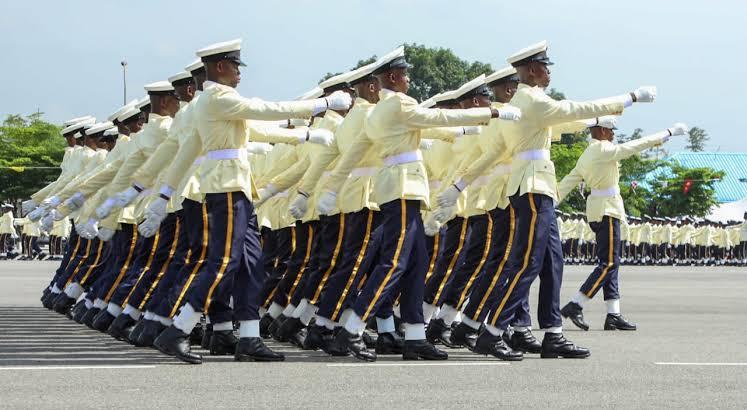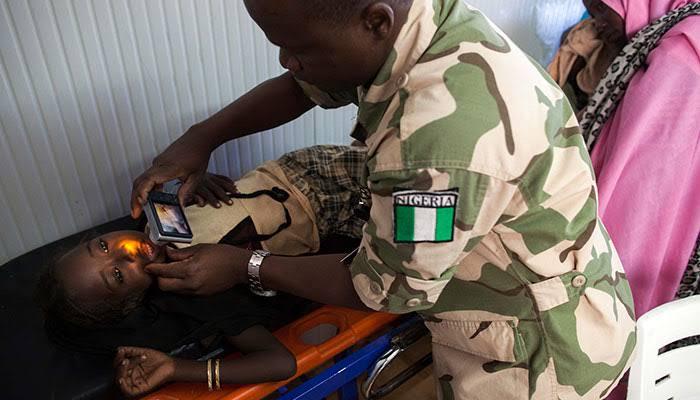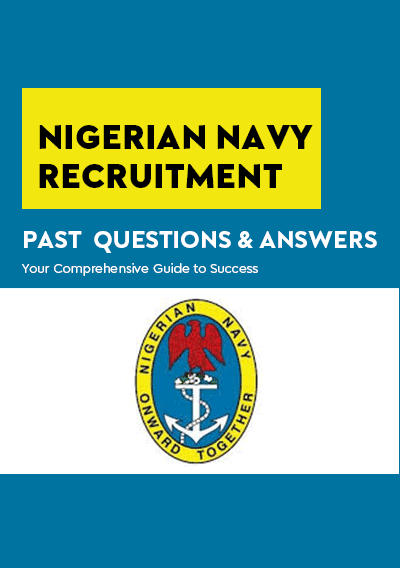Explore Our Bill Payment Services:

- Military And Defence
- Armed Forces Guide
- Nigeria
How To Easily Pass Nigerian Navy Screening And Training: 2025 Official Guide
Joining the Nigerian Navy (NN) is a dream for many young Nigerians, but only those who pass the screening and training stages make it to the final list. Whether you’re applying through DSSC, SSC, or NDA, you’ll go through intensive screening and military training.
This official 2025 guide explains how to pass Nigerian Navy screening and training easily — with tips, preparation steps, and what to expect at each stage.
What Is Nigerian Navy Screening?
Navy screening is the selection stage where applicants are tested physically, mentally, and medically before being accepted into training.
There are two major screening phases:
-
Pre-Screening / Aptitude Test
-
Final Screening & Medicals
Let’s break them down.
1. Pre-Screening Stage (Aptitude Test)
This test determines your general intelligence and academic knowledge.
What to Expect:
-
English Language
-
Mathematics
-
Current Affairs
-
Verbal & Logical Reasoning
-
Basic Military Knowledge (for SSC/DSSC)
How to Prepare:
-
Study past Navy recruitment questions
-
Practice online aptitude tests
-
Improve your grammar and spelling
-
Revise secondary school English & Maths topics
-
Learn basic Navy history and structure
2. Final Screening & Medical Examination
If you pass the aptitude test, you'll be invited for final screening at designated centers.
What You’ll Be Tested On:
-
Medical check-up (blood pressure, eye test, dental, height, weight)
-
Physical fitness test (running, push-ups, sit-ups, drills)
-
Document verification (birth cert, credentials, state ID)
-
Background & character check
How to Pass:
-
Start jogging daily at least 4 weeks before screening
-
Practice 30+ push-ups and sit-ups daily
-
Eat healthy and stay hydrated
-
Get at least 7 hours of sleep daily
-
Make sure all your documents are genuine and well-arranged
What Happens After Screening?
Successful candidates are posted to Nigerian Navy training schools based on their category:
| Category | Training School | Duration |
|---|---|---|
| SSCE (Ratings) | Navy Basic Training School, Onne | 6–9 months |
| DSSC/SSC | Nigerian Naval College, Onne | 6–12 months |
| NDA | NDA Kaduna + Navy College (Onne) | 5 years total |
How to Pass Nigerian Navy Training Easily
Navy training is physically demanding and mentally tough, but not impossible. Thousands complete it each year. Here’s how you can do the same.
1. Train Your Body
Navy training involves:
-
Long-distance running (2–5 km daily)
-
Swimming drills
-
Obstacle courses
-
Endurance and flexibility exercises
Tip: Start running and swimming regularly 1 month before training starts.
2. Build Mental Toughness
You’ll face:
-
Strict time discipline
-
Early morning drills (as early as 4:30 AM)
-
Punishment for mistakes
-
Minimal phone access
Tip: Prepare to obey orders, stay focused, and never argue with instructors.
3. Maintain Good Health
Health is key to staying in training.
-
Eat balanced meals
-
Avoid alcohol and smoking
-
Drink enough water
-
Report illnesses early to camp medics
Tip: Go for a full medical check-up before reporting to camp.
4. Be a Fast Learner
Navy school includes academic and technical sessions like:
-
Seamanship
-
Naval hierarchy
-
Communication drills
-
Weapon handling
Tip: Pay attention during lectures and drills. Ask questions when confused.
Common Mistakes to Avoid During Navy Screening/Training
| Mistake | Why It Fails You |
|---|---|
| Submitting fake credentials | Disqualification at screening |
| Poor physical fitness | You’ll be dropped during training |
| Bad attitude or indiscipline | Can get you dismissed |
| Refusing to follow orders | Seen as insubordination |
| Health issues not disclosed early | May lead to medical withdrawal |
FAQs – How to Pass Navy Screening & Training in 2025
1. Is Navy screening difficult?
It’s challenging but passable with preparation. Thousands pass it yearly.
2. What is the best way to prepare?
Start physical training early, study past questions, and get fit medically.
3. Do Navy trainees get paid?
Yes. You’ll receive a monthly training allowance (₦20,000 to ₦65,000) depending on your entry level.
4. Can females apply and survive training?
Yes. Females are allowed and many have completed Navy training successfully.
5. Can I use my phone during training?
No. Phone use is limited and mostly prohibited during early stages of training.
Conclusion
Passing the Nigerian Navy screening and training in 2025 is possible — if you prepare ahead. Start working on your fitness, gather your documents, and stay mentally disciplined. With the right mindset and preparation, you can join the ranks of Nigeria’s elite naval force.









